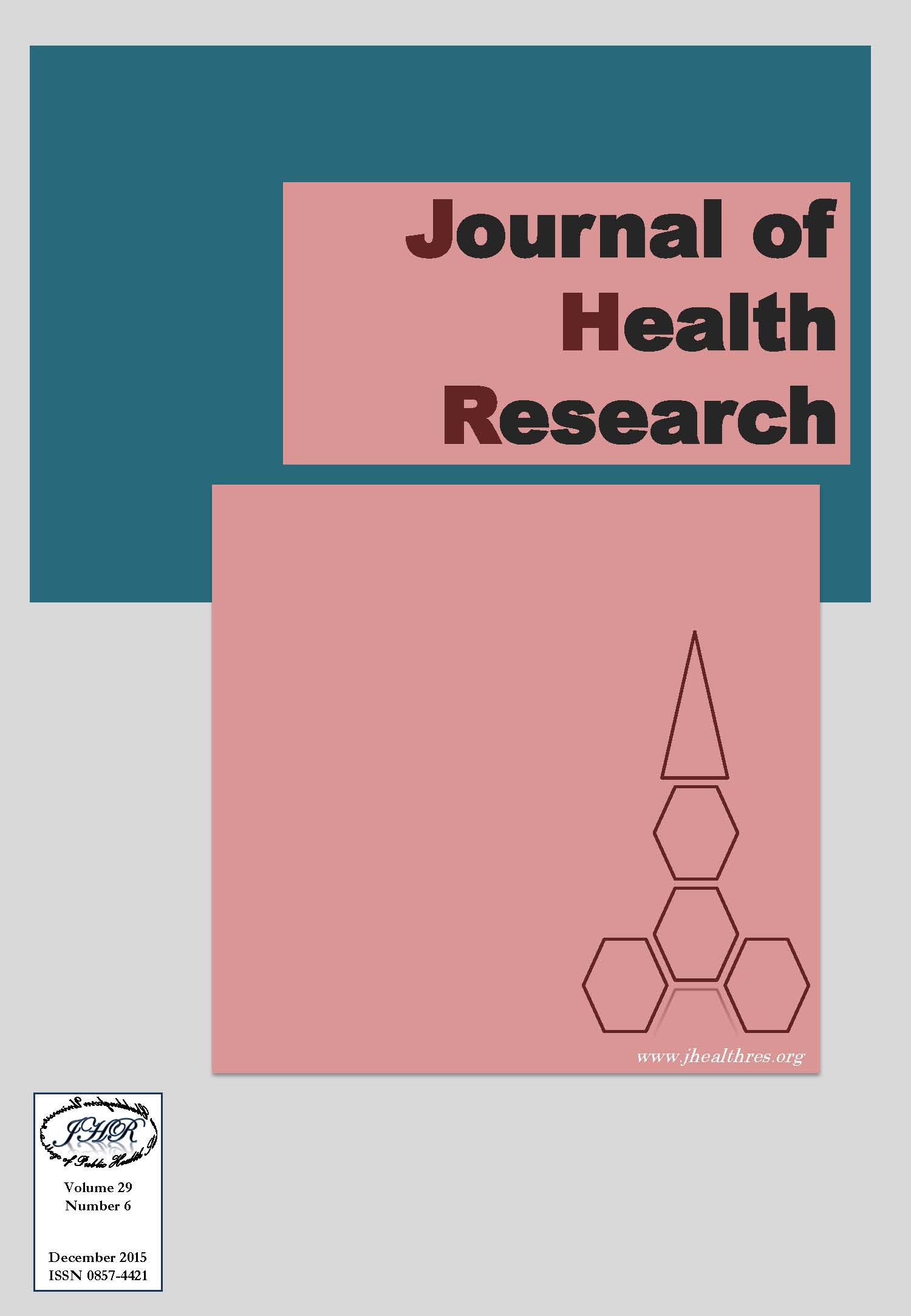The Impact of Chronically Ill Elderly on Household Economic Status: Evidence from Thailand
Keywords:
Wealth depletion, Income depletion, Chronic disease, ThailandAbstract
Background: In accordance with the epidemiologic transition due to an ageing population, the disease burden of the Thai population has been shifting from a predominance of infectious diseases to non-communicable diseases (NCD), especially chronic diseases. Households with chronically ill elderly experience a variety of deleterious impacts.
Methods: This study aims to assess the economic consequences of chronic disease among elderly members in households, specifically regarding household income and wealth depletion. The third (2007) and the fourth (2010) waves of the household socio-economic panel survey, which is a nationally representative panel of approximately 6,000 households conducted by the National Statistical Office of Thailand (NSO), were employed to study the impact of chronic disease among the elderly with respect to the economic status of households by using regression model. The model of impact of health on wealth depletion is formulated as where w is wealth change(as a dependent variable), H is a change in health condition(independent variables), and X are control variables including age, sex, education, area of residence, occupation of household, health insurance coverage, and wealth quintile.
Results: The percentage of households with elderly members who suffered from a chronic disease were more than that of households without elderly members. The percentage of households with members who had a chronic disease in 2010 was higher than in 2007. Over one-tenth (13.0%) of households had elderly members who had onset of cardiovascular disease in 2007, and this rate increased to 20.3% in 2010. The regression model suggests that the total wealth depletion of households had a positive significant effect with respect to households with at least one elderly member having cancer (0.736 p<0.05). Health insurance buffers the impact of chronic disease on wealth or income depletion of households. Increases in the proportion covered by universal health insurance coverage (UC) or social security system (SSS) would result in a reduction of household wealth depletion by 49% (p<0.01) and 56% (p<0.01), and reduction on income depletion by 34% (p< 0.05) and 67% (p<0.01).
Conclusions: It is recommended to promote healthy ageing through active health promotion, changes in life style and maintaining pre-elderly population health.







